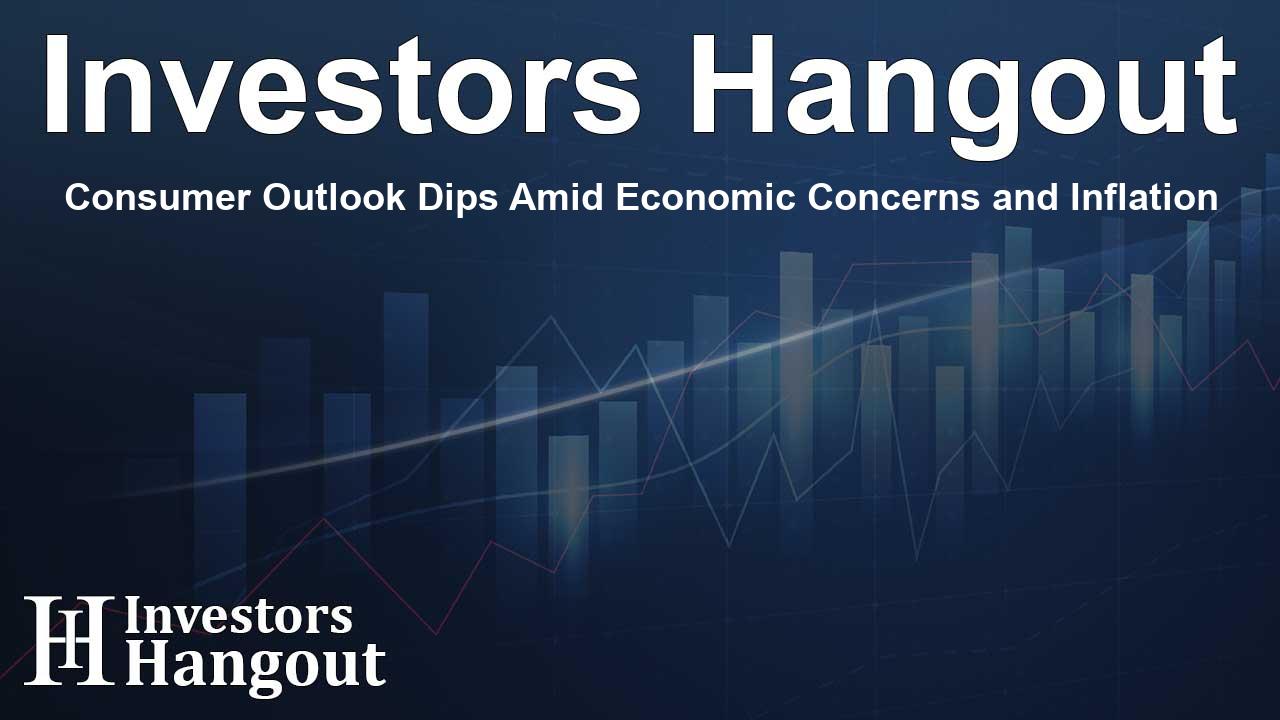Consumer Outlook Dips Amid Economic Concerns and Inflation

Understanding the Drop in Consumer Confidence
A sharp decline in consumer confidence has emerged recently, primarily influenced by worsening perceptions of the current economic situation. This downward trend raises important questions about consumer sentiment and its implications for the broader economy.
The Consumer Confidence Index: An Overview
The Consumer Confidence Index, a critical tool that gauges consumer attitudes toward current economic conditions, saw a notable decrease. In September, the index fell by 3.6 points to a score of 94.2, marking a decline from 97.8 in August. The Present Situation Index, which reflects consumers' views on current business and labor market conditions, dropped significantly by 7.0 points to 125.4. Meanwhile, the Expectations Index, which assesses consumers' outlook for the future, also decreased slightly by 1.3 points to 73.4.
Insights from Economists
According to Stephanie Guichard, a Senior Economist, the latest data indicates that consumer confidence has reached its lowest point since April. She noted that the rapid drop in assessments of current business conditions correlates with a declining number of job openings. Moreover, consumers appear to be sharing increasingly pessimistic views on job availability, continuing a trend where their confidence in the labor market diminishes.
Demographic Perspectives on Confidence
When examining the shifts in consumer confidence, it becomes evident that different demographic groups are responding uniquely to current economic conditions. Interestingly, confidence levels among consumers under 35 years of age have increased, while those over 35 have reported declining confidence. Furthermore, a mixed pattern observed by income levels reveals that households earning between $25K and $35K and those making over $200K are struggling with lower confidence.
Inflation and Its Impacts
The focus on inflation is particularly pronounced, with consumers citing rising prices as a significant concern influencing their economic outlook. This elevated anxiety about inflation dominates over other concerns, despite a recent decrease in mentions of tariffs. Furthermore, consumer projections for inflation over the next 12 months decreased marginally, revealing a slight decline from 6.1% to 5.8%.
Expectations for Future Economic Conditions
Looking ahead, consumer expectations have turned somewhat more pessimistic, reflecting concerns about future business conditions and the labor market. Only 18.7% of consumers foresee improvements in business conditions over the coming months, which is a decrease from 20.2% in August. Additionally, a significant proportion, 25.6%, anticipates a reduction in job availability, which echoes a broader trend of economic uncertainty.
Shifts in Purchasing Intentions
Amidst this backdrop of declining confidence, purchasing intentions reflect consumers' apprehension regarding their financial situation. Plans to purchase cars have weakened, while home purchasing intentions have surged to a four-month high. Big-ticket items such as electronics have continued to attract interest, with smartphones seeing a notable increase in purchase intentions.
Consumer Awareness and Financial Planning
Moreover, consumers have indicated a greater awareness of their family financial situations, with views on current and future finances both declining in September. This drop underscores the growing concerns about economic stability, with more respondents believing that a recession is imminent. These insights reveal a critical need for consumers to reassess their financial strategies amid the current climate.
Analyzing the Risk of Recession
The climate of uncertainty is further accentuated by rising concerns regarding a potential recession. Recent data suggests an increasing number of consumers suspect that the economy may already be in a recession. This perception, although not formally included in the Consumer Confidence Index, highlights prevalent fears regarding economic downturns.
Conclusion: The Consumer Landscape Ahead
In conclusion, the decline in consumer confidence presents critical insights into the current state of the economy. Factors such as inflation, uncertain job prospects, and changing consumer attitudes reflect a complex economic landscape. As confidence levels fluctuate, it is imperative for consumers to remain informed and adapt their financial decisions accordingly.
Frequently Asked Questions
What is the Consumer Confidence Index?
The Consumer Confidence Index measures how optimistic or pessimistic consumers are about the economy's current and future conditions.
Why did consumer confidence decline in September?
The decline in consumer confidence in September was mainly due to deteriorating views on current economic conditions and rising concerns over inflation.
How do demographic factors influence consumer confidence?
Demographic factors such as age and income can significantly impact consumer confidence levels, with different groups reacting differently to economic conditions.
What role does inflation play in consumer sentiment?
Inflation significantly influences consumer sentiment, as rising prices lead to increased concerns about purchasing power and economic stability.
What are consumers' expectations regarding the economy?
Consumers are increasingly pessimistic about future economic conditions, with many anticipating fewer job opportunities and potential business downturns.
About The Author
Contact Thomas Cooper privately here. Or send an email with ATTN: Thomas Cooper as the subject to contact@investorshangout.com.
About Investors Hangout
Investors Hangout is a leading online stock forum for financial discussion and learning, offering a wide range of free tools and resources. It draws in traders of all levels, who exchange market knowledge, investigate trading tactics, and keep an eye on industry developments in real time. Featuring financial articles, stock message boards, quotes, charts, company profiles, and live news updates. Through cooperative learning and a wealth of informational resources, it helps users from novices creating their first portfolios to experts honing their techniques. Join Investors Hangout today: https://investorshangout.com/
The content of this article is based on factual, publicly available information and does not represent legal, financial, or investment advice. Investors Hangout does not offer financial advice, and the author is not a licensed financial advisor. Consult a qualified advisor before making any financial or investment decisions based on this article. This article should not be considered advice to purchase, sell, or hold any securities or other investments. If any of the material provided here is inaccurate, please contact us for corrections.
